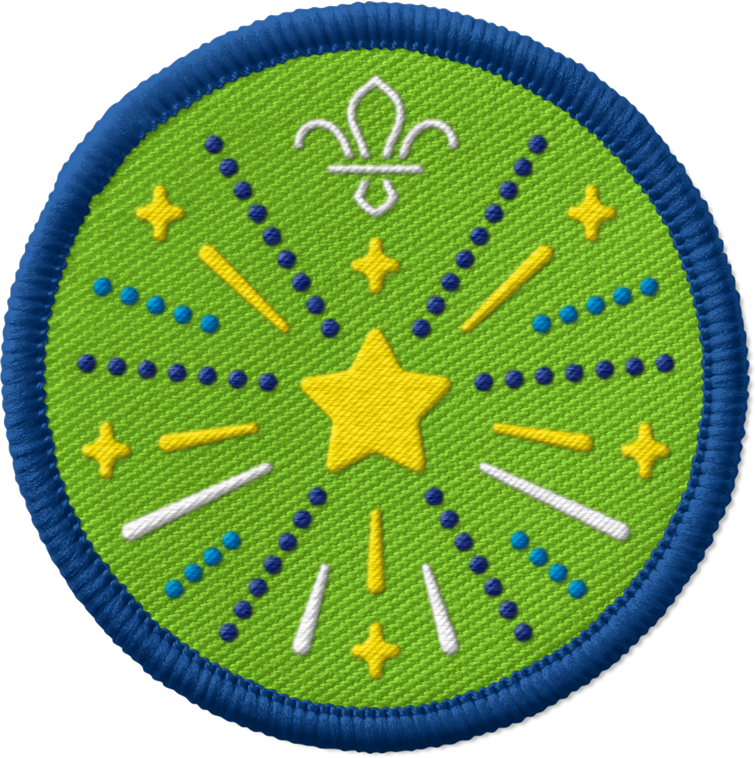
Learn about Hanukkah with a Menorah relay
You’ll need
- Modelling clay
- Dinner candles or birthday candles (nine per small group)
- Picture of Hanukkah menorah
Scouts is open to everyone. We don’t identify exclusively with one faith, and we welcome people of all faiths and of none.
We know it’s important for people to learn about each other, including understanding different faiths and beliefs. Scouts always respects people’s beliefs, faiths and cultures, and everyone should be open to learn.
As an inclusive and values based movement, we support our members to engage and learn about different faiths and beliefs in an exciting and meaningful way, even if they don’t have a faith themselves.
Celebrating and understanding differences, including differences in faiths and beliefs, is an important part of our Scout values, which are:
- Integrity: We act with integrity; we are honest, trustworthy and loyal.
- Respect: We have self-respect and respect for others.
- Care: We support others and take care of the world in which we live.
- Belief: We explore our faiths, beliefs and attitudes.
- Co-operation: We make a positive difference; we co-operate with others and make friends.
Our value of Belief and its exploration helps Scouts to learn from other faiths and beliefs. This encourages them to develop or build their personal beliefs and understand their shared values, whether faith-based on not.
We know that learning about faiths, beliefs and different attitudes can help to break down barriers, helps us all to recognise what we have in common, and teaches us to value and respect other people. It also helps us to build up respect, acceptance and knowledge for each other, leading to a more co-operative and inclusive society.
In our diverse society, people can sometimes feel cautious talking about this sensitive subject. However, it's important that Scouts offers young people safe, exciting and open spaces to explore faiths and beliefs. They should be able to engage in personal reflection, as they question and develop their opinions and understanding of the world around them.
Making time for personal reflection and developing our beliefs means exploring the places, people, communities, celebrations or stories which hold meaning for us, and it may not necessarily mean exploring a faith.
For example, someone’s shared values may be their Scout Values and that person may choose to reflect on them at important times, such as when they make their Promise. Others may choose to reflect at certain times of the year, such as a faith-based festival, birthdays, meaningful events or at New Year. Some people may still celebrate events, such as Christmas, but use it as a time to celebrate family, friends and loved ones, as well as for charity and giving.
Discover more about Faiths and Beliefs in Scouts.
- Hanukkah linked to the lunar calendar, so the date changes each year. But it’s usually sometime in November or December.
- During Hanukkah, people remember a time over 2,000 years ago in Israel, when Jewish people won their freedom to practice their religion. There was a king who wanted everyone to be the same. He would not let Jewish people worship, and tried to make them pray to gods they didn’t believe in.
- A small group of Jews fought against the king’s army and eventually won. They lit an oil lamp in their temple to celebrate.
- A miracle is celebrated during Hanukkah. The one jug of oil that was left in the temple should have only lasted for one day, but instead it burned for eight days. This is why Hanukkah lasts for eight days.
- People celebrate Hanukkah by sharing gifts, playing a game with a special spinning top called a dreidel, and eating foods cooked in oil, such as donuts, to remember the miracle.
Before you begin
- Use the safety checklist to help you plan and risk assess your activity. Take a look at our guidance to help you carry out your risk assessment, including examples.
- Make sure all young people and adults involved in the activity know how to take part safely.
- Make sure you’ll have enough adult helpers. You may need some parents and carers to help if you’re short on helpers.
Planning and setting up this activity
- Find out when Hanukkah is next taking place, so you can plan this activity during or around the festival. The date changes each year, but it’s usually celebrated in either November or December.
- In this activity, everyone will split into relay teams and you’ll need nine candles per team.
Running this activity
Making the Menorah
- Gather everyone together in a circle. Ask if anyone knows what Hanukkah is.
- Explain that Hanukkah is a Jewish festival which lasts for eight nights. It is sometimes known as the Jewish festival of lights. Another spelling, Chanukah, is sometimes used, but it's pronounced the same way.
- Ask if anyone has heard of a Menorah or knows what it is. You could show the group a picture of a Menorah used to celebrate Hanukkah. Explain that a Menorah is a type of candelabra (a candle holder with arms or branches), used in Jewish worship.
- Ask people how many candles there are on a Menorah. Tell everyone that Menorahs usually have space for seven candles, but a special one is used for Hanukkah, which has space for nine candles. One candle is called the shamash or ‘helper’ candle, and is used to light the other eight candles, one on each night of the festival. It’s usually got a special place on the menorah, often in the middle.
- Ask everyone to get it into teams. Each team should have a ball of modelling clay. They should make it into a shape wide enough to fit nine candles, with a raised part for the middle candle. The middle candle should stand higher than all the others.
- When they’re ready, each team should place one candle in the middle of their shape. Explain that this is the helper candle – it’s used to light the other candles on the Menorah.
Play the Menorah relay
- Explain that, apart from the helper candle in the middle, there is space on the menorah for eight candles. This means one candle for each of the eight nights of Hanukkah.
- Tell everyone you’re going to have a relay to complete each team’s Menorahs.
- Each team should line up at one end of the meeting space with their Menorah models.
- The remaining candles should be placed at the other end of the meeting space.
- When the person leading the game says ‘go’, the first person in each team should race to fetch a candle, then bring it back add it to their modelling clay shape. They should then join the back of their team’s line and the next person should go.
- The winning team is the first team to place all remaining eight candles.
- Everyone can keep playing all teams have got their nine candles in their Menorah model.
Story time for younger sections
- Gather everyone in a circle.
- At the start of this activity, someone should read Happy Hanukkah by Annabel Rose. This story is about a family celebrating Hanukkah.
- After reading the story, take time to ask questions and think about what happened in the story together.
Katie was excited. Today was an important day – she was going to her friend Elijah’s house to celebrate Hanukkah with him and his family.
Lots of Elijah’s family were visiting for Hanukkah. When everyone had arrived, they all gathered around a candle holder.
‘That’s the menorah,’ explained Elijah. ‘We use the tallest candle in the middle to light the others.’
Elijah’s mum told Katie all about the Hanukkah miracle. A long time ago, in ancient times, the people who were in charge said that Jewish people weren’t allowed to pray to their God or read their holy book. They even destroyed the Jewish people’s temples.
A brave Jewish family stood up for what they believed in – and they won. They wanted to light their menorah, which used oil instead of candles, but they only had enough oil to keep the menorah burning for one day.
Then a miracle happened: the little bit of oil they had kept the menorah burning for eight whole days.
‘That’s why we light our menorah and eat lots of food cooked with oil at Hanukkah,’ Elijah said. Katie looked at all of the food on the table – there were tasty looking doughnuts and crisp potato cakes called latkes.
‘Why are there chocolate coins?’ asked Katie.
‘Find a spot to sit,’ said Elijah’s auntie, ‘and we’ll play the dreidel* game.’ She shared the chocolate coins out, and everyone took it in turns to spin a wooden spinning top called a dreidel.
The Hebrew letters on the dreidel told people whether they’d won or lost some of their chocolate coins. Katie didn’t win the game, but the winner was kind and shared their coins with everyone.
I’m so glad you could come and celebrate Hanukkah with me,’ said Elijah. ‘Hanukkah Sameach**!’
*Dreidel is pronounced drey-del.
**Hanukkah Sameach means ‘happy Hanukkah’ in Hebrew. Sameach is pronounced su-mey-ah.
By Annabel Rose
Reflection
This activity was about respecting others and being a team player, by learning more about the people and cultures of the world, and respecting that people believe in and celebrate different things.
Happy Hanukkah
- What does Katie learn about Hanukkah in the story?
- Does anyone in the group celebrate Hanukkah? How do they celebrate?
- What is the miracle celebrated in Hanukkah, and what does it have to do with celebrating Hanukkah for eight nights?
Menorah relay
- Can you think of any other special times when people might light candles?
Safety
All activities must be safely managed. You must complete a thorough risk assessment and take appropriate steps to reduce risk. Use the safety checklist to help you plan and risk assess your activity. Always get approval for the activity, and have suitable supervision and an InTouch process.
- Active games
The game area should be free of hazards. Explain the rules of the game clearly and have a clear way to communicate that the game must stop when needed. Take a look at our guidance on running active games safely.
- To make this activity harder, you could get teams to make their modelling clay into the shape of a real menorah, with nine branches or arms. Everyone could make their own menorah to take home using air-drying clay.
- If a relay race isn’t accessible for everyone, the candles could be hidden around the meeting space instead. Everyone could work together in teams, or as a whole group, to find the right number of candles.
All Scout activities should be inclusive and accessible.
If you enjoyed this activity, you could make and decorate your own donuts to celebrate Hanukkah.
If you’ve any Jewish members in your group, you could offer them the opportunity to share their experiences, but only if they want to and are comfortable to do so. You may want to ask or chat to them before the session, so they don’t feel put on the spot or singled out.
